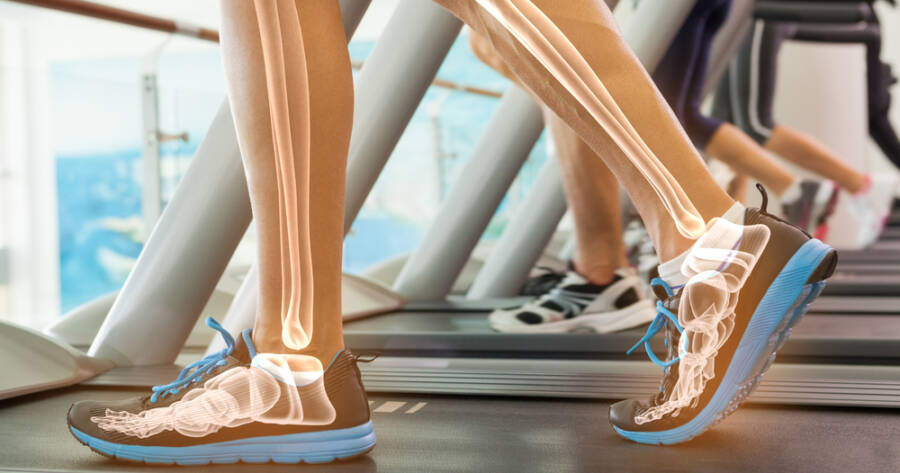As bone density naturally declines with age, understanding and maintaining bone health becomes increasingly important. Key elements such as nutrition, supplements, and lifestyle choices play a crucial role in supporting bone density. Calcium and Vitamin D are among the most vital nutrients, while physical activities and dietary habits complement their benefits. Monitoring bone health, particularly through screenings and professional guidance, can help mitigate risks like osteoporosis, ensuring a stronger skeletal framework for life.
Understanding Bone Density: Why It Matters
Bone density refers to the amount of bone mineral in bone tissue, indicating strength and structural integrity. As people age, specifically from the mid-30s onwards, bone density naturally begins to decline as seen in many individuals. This gradual loss can lead to conditions such as osteoporosis, particularly affecting women post-menopause.
A crucial factor in maintaining bone health is understanding the role of key nutrients and lifestyle choices that contribute to bone density. While genetics and age are uncontrollable factors, diet and supplementation play significant roles in bolstering bone health and mitigating the risks of osteoporosis.
The Role of Essential Supplements in Bone Health
Supplementation can make a crucial difference in improving bone health, especially when dietary intake falls short. Calcium and Vitamin D sit at the forefront of essential supplements for maintaining strong bones due to their foundational roles in bone formation. Calcium, stored predominantly in the bones, is the key building block of bone tissue, with daily recommended intakes varying with age. Vitamin D synergistically aids calcium absorption and is particularly important during times of limited sun exposure. Both nutrients can mitigate the development of osteoporosis when balanced correctly, though excess intake can bring about adverse effects like kidney stones or hypercalcemia.
Magnesium is another critical component, essential for bone health due to its prevalence in bone tissue. It aids in bone formation and influences vitamin D levels, but like calcium, too much magnesium can trigger side effects such as diarrhea. Boron, a trace element, supports bone growth and nutrient utilization, though it is best obtained through dietary sources like prunes rather than supplements due to ongoing research.
Zinc is an often overlooked element that supports the bone regeneration process, especially following fractures. Similar to magnesium and calcium, careful consideration of intake levels is crucial to avoid potential side effects. Vitamin K, while beneficial when combined with calcium, warrants caution as it can interact with certain medications. Hence, consulting healthcare providers before beginning supplements is advised to ensure safety and efficacy.
Calcium and Vitamin D: The Cornerstones of Bone Health
Adequate calcium intake is imperative for preventing bone deterioration. For women over 50, the daily recommended intake is 1,200 mg. Calcium deficiency can compel the body to draw calcium from the bones, increasing the risk of osteoporosis.
Integrating calcium-rich foods like dairy and fortified products into the diet aids in meeting these demands. Meanwhile, Vitamin D is essential for facilitating this calcium absorption and is recommended in doses of 15 mcg (600 IU) to 20 mcg (800 IU) based on age and need.
Managing Bone Density Through Lifestyle and Diet
Alongside supplements, lifestyle and dietary changes play a pivotal role in managing bone density. The Mediterranean diet rich in vegetables, fruits, legumes, whole grains, and olive oil is recommended due to its high nutrient content, supporting overall health including that of bones.
Regular physical activity, such as strength training, improves bone strength, while weight-bearing exercises like walking enhance bone density. Additionally, lifestyle adjustments, such as cutting down on alcohol and avoiding smoking, contribute significantly to maintaining bone health.
Monitoring and Enhancing Bone Health
It’s recommended for women to commence osteoporosis screenings by age 40 to monitor bone density. Early detection allows for preventive measures, reducing the risk of significant bone loss.
Such measures include dietary modifications, supplements, and exercises tailored to delay or reduce bone density loss. Regular consultation with healthcare providers can ensure the appropriate supplementation based on individual needs, thus avoiding potential interactions and side effects.
Why You Should Learn More About Bone Density Today
Understanding bone density and the factors influencing it is critical for long-term health and well-being, particularly for women. Given the natural tendency for bone density to decrease with age, proactive measures undertaken today can lead to healthier living tomorrow.
Bone density not only impacts overall strength and function but also affects one’s risk of developing osteoporosis and related conditions. Educating oneself about the necessary supplements and lifestyle changes needed to enhance bone density equips individuals with the tools to maintain a robust and healthy skeletal system. With the right knowledge and approach, maintaining bone health becomes a feasible goal for everyone.
Sources
Benefits of Key Nutrients for Osteoporosis
Role of Supplements in Osteoporosis Management
